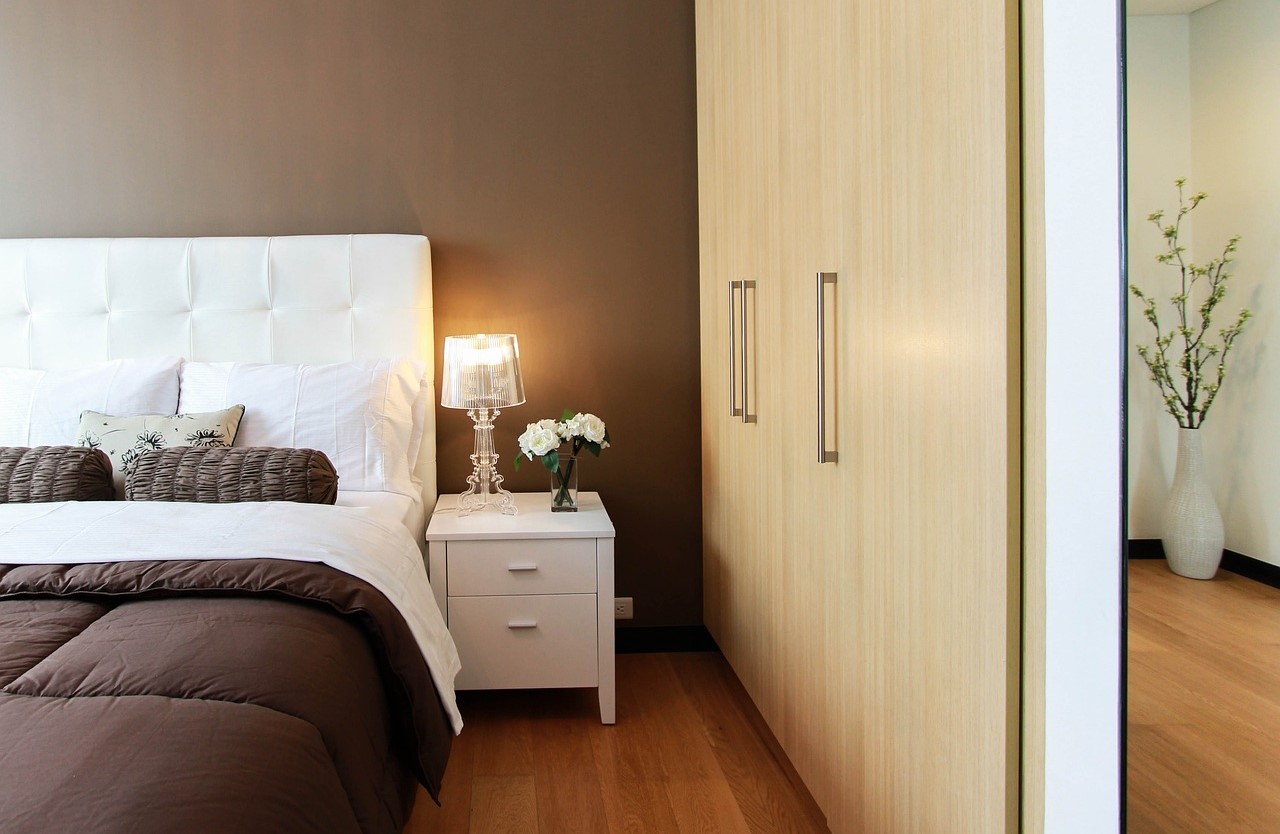- Stick to a Sleep Schedule
- Go to bed and wake up at the same time every day, even on weekends. Consistency reinforces your body’s sleep-wake cycle.
- Create a Relaxing Bedtime Routine
- Wind down with calming activities like reading, meditation, or taking a warm bath. This signals your brain it’s time to relax.
- Limit Screen Time Before Bed
- Avoid screens (phones, tablets, computers) at least an hour before sleep. Blue light disrupts melatonin production, which is essential for sleep.
- Optimize Your Sleep Environment
- Keep your bedroom cool, dark, and quiet. Consider blackout curtains, white noise machines, or earplugs if necessary.
- Invest in Comfortable Bedding
- A supportive mattress and cozy pillows can make a big difference in sleep quality.
- Watch What You Eat and Drink
- Avoid heavy meals, caffeine, and alcohol close to bedtime. A light snack like a banana or yogurt is okay if you’re slightly hungry.
- Exercise Regularly
- Physical activity helps regulate sleep patterns. Aim for at least 30 minutes of moderate exercise most days, but avoid vigorous workouts close to bedtime.
- Manage Stress and Anxiety
- Practice stress-relief techniques such as deep breathing, journaling, or yoga to ease your mind before bed.
- Avoid Naps Late in the Day
- If you need a nap, limit it to 20-30 minutes and take it earlier in the day to prevent disrupting nighttime sleep.
- Seek Sunlight During the Day
- Exposure to natural light helps regulate your internal clock. Spend time outdoors or near a bright window during daylight hours.
Part I: The Importance of Sleep
Why Is Sleep Important?
Sleep is a cornerstone of physical and mental health. It helps the body repair tissues, consolidate memories, and regulate hormones. Research from the National Sleep Foundation has shown that adults who sleep 7–9 hours per night have better cognitive function, improved immunity, and lower risks of chronic diseases such as diabetes and heart conditions.
What Happens When You Don’t Sleep Enough?
Sleep deprivation can lead to a range of issues, including:
- Impaired memory and concentration.
- Increased stress and irritability.
- Higher risk of obesity, heart disease, and depression.
A study published in Science Advances (2019) showed that chronic sleep loss reduces the brain’s ability to clear toxins, potentially contributing to neurodegenerative conditions like Alzheimer’s.
Part II: Creating the Perfect Sleep Environment

Bedroom Environment
- Lighting:
Darkness signals the brain to produce melatonin, the hormone that induces sleep. Use blackout curtains and switch to dim night lights if necessary.
Example: A study in Chronobiology International (2017) found that exposure to artificial light at night disrupts the circadian rhythm, delaying sleep onset. - Noise:
Minimize disturbances with earplugs or white noise machines. White noise can help mask sudden disruptive sounds.
Example: Research in Journal of Sleep Research (2015) indicated that consistent white noise improved sleep quality in individuals living in noisy environments. - Temperature:
The optimal room temperature for sleep is around 18–22°C (64–72°F).
Fact: Lower temperatures signal the body to enter a state of rest, as supported by findings in Sleep Medicine Reviews (2020).
Bed and Bedding
- Mattress and Pillows:
Choose supportive yet comfortable options tailored to your sleeping position.
Tip: Memory foam mattresses and ergonomic pillows can reduce back and neck pain. - Cleanliness:
Wash bedding regularly to maintain hygiene and comfort.
Part III: Bedtime Routines
Consistent Sleep Schedule
- Stick to the same sleep and wake times every day, even on weekends, to regulate your internal clock.
- Avoid long naps; limit daytime naps to 20–30 minutes.
Relaxation Techniques
- Warm Bath: Soaking in warm water before bed can lower body temperature, signaling sleep readiness.
- Reading or Soft Music: Calm activities, like reading or listening to classical music, help the mind relax.
- Meditation: Guided meditation or deep breathing exercises can reduce stress and promote sleep.
Evidence: A 2018 study in JAMA Internal Medicine revealed that mindfulness meditation improved sleep quality in adults with insomnia.
Avoid Stimulants
- Caffeine, Alcohol, and Nicotine: These substances interfere with sleep cycles. Limit their consumption in the evening.
- Screen Time: Blue light from screens suppresses melatonin production. Turn off devices an hour before bed.
Part IV: Diet and Exercise

Diet and Exercise
Diet and exercise are two sides of the same coin when it comes to achieving and maintaining a healthy weight. Diet refers to the food and drinks we consume, while exercise involves physical activity. Both play crucial roles in our overall health and well-being.
Examples:
- Weight loss: If someone wants to lose weight, they might reduce their calorie intake by cutting down on sugary drinks and processed foods, and increase their calorie expenditure by engaging in regular cardio workouts like running or swimming.
- Building muscle: To build muscle, an individual would need to consume a diet rich in protein to support muscle growth and engage in strength training exercises like weightlifting.
- Improving cardiovascular health: A person aiming to improve their heart health could follow a Mediterranean diet, which is rich in fruits, vegetables, whole grains, and healthy fats, and incorporate regular aerobic exercise.
Benefits of combining diet and exercise:
- Weight management: Both diet and exercise are essential for effective weight management.
- Improved metabolism: Regular exercise can boost metabolism, helping the body burn calories more efficiently.
- Increased energy levels: A balanced diet and regular exercise can lead to increased energy levels.
- Reduced risk of chronic diseases: A healthy lifestyle can reduce the risk of developing chronic diseases such as heart disease, type 2 diabetes, and certain types of cancer.
- Better mental health: Exercise has been shown to improve mood and reduce symptoms of depression and anxiety.
Eating Habits
- Avoid heavy meals close to bedtime; opt for light snacks if hungry.
- Limit spicy, sugary, or caffeinated foods.
- Drink a warm glass of milk, which contains tryptophan, known to aid in sleep.
Physical Activity
- Exercise regularly, but avoid high-intensity workouts within three hours of bedtime.
- Practice gentle activities like yoga or a short evening walk to relax your body.
Study: A review in Advances in Preventive Medicine (2016) highlighted that moderate physical activity enhances sleep efficiency and duration.
Part V: Mental Health and Sleep
Managing Stress
- Journaling: Write down worries to clear your mind.
- Talk to Loved Ones: Sharing thoughts can alleviate stress.
- Seek Professional Help: Therapy or counseling can address persistent anxiety or depression.
Shifting Negative Thoughts
Replace anxious or intrusive thoughts with positive affirmations or gratitude practices.
Example: Cognitive Behavioral Therapy for Insomnia (CBT-I) has been shown to reframe unhelpful thoughts, improving sleep quality.
Part VI: Additional Tips
- Organize Your Bedroom: A tidy space promotes relaxation.
- Avoid Frequent Napping: Excessive daytime sleep can disrupt nighttime rest.
- Explore Relaxation Therapies:
- Aromatherapy: Lavender and chamomile oils are proven to reduce stress and improve sleep.
- Sound Therapy: Nature sounds or soft instrumental music can create a calming atmosphere.
Improving sleep quality doesn’t happen overnight—it requires consistency and patience. By integrating these evidence-based tips into your daily routine, you’ll enhance not just your sleep but also your overall well-being.



